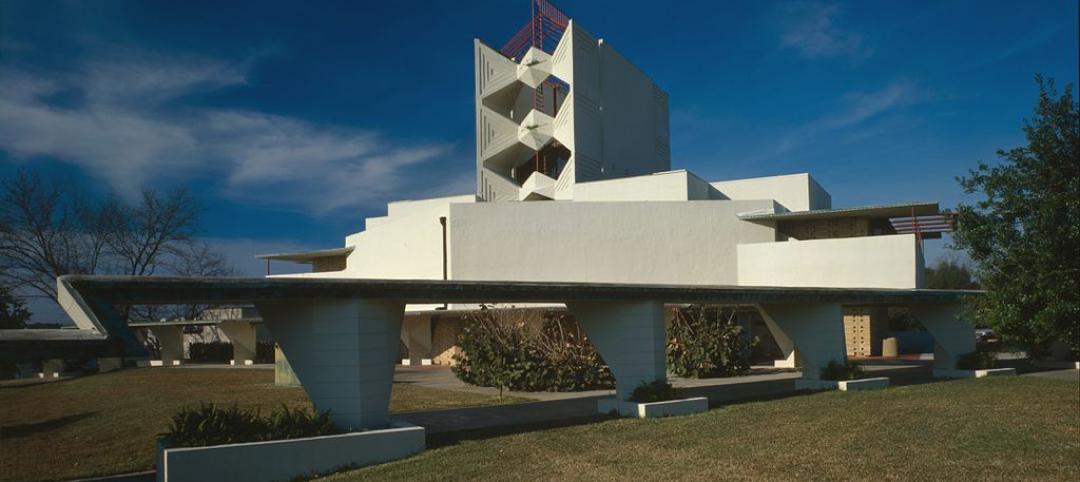HDR, a global architectural firm based in Omaha, Neb., has joined forces with CEI Architecture, a Vancouver, B.C.-based firm with about 70 employees.
The merger went into effect on July 26. As it has in other countries, such as Germany and Australia, in which it expanded through acquisitions and then combined its name with the acquired company’s, HDR now goes to market in Canada as HDR|CEI. The corporation is based in Omaha.
HDR has had a presence in Canada since 1996, when it started with a project office in Toronto. It expanded in Canada by acquiring Kingston, Ont.-based Mill & Ross Architects in August 2007, and G+G Partnership Architects, a healthcare design firm, in 2009. Those offices consolidated into one in Toronto, which currently has about 120 employees.
The CEI deal is HDR’s first foray into western Canada, according to a company spokesperson, who adds that HDR’s offices in Toronto, Kingston, Ottawa, and London, Ont., will continue to operate as before.
CEI, which was founded in 1996, focused its attention on western Canada, with offices in Edmonton and Calgary, Alberta, and in the British Columbia cities of Victoria and Penticton, according to Canadian Architect magazine.
Doug Wignall, AIA, HDR’s President, said the alliance brings together two firms with similar philosophies about design, business orientation, and customer service. Both firms have particular expertise in public-private partnerships in the healthcare sector.
“This common platform is essential to building a solid foundation for future growth,” said Wignall.
CEI’s Founding Partner, Bill Locking, is now a Senior Vice President with HDR|CEI. He believes this merger will help HDR expand into new sectors in Canada such as recreation, K-12 education, and commercial development.
Locking says news of the union has received overwhelmingly positive responses from key clients, who “understand that we will remain the same highly professional team.”
What is changing, he said, is the firm’s capability to deliver global research, benchmarking, and professional expertise.
HDR, founded in 1917, has more than 1,450 architecture employees working in offices that provide complete design, engineering, planning, and consulting services in the U.S., Canada, United Arab Emirates, Germany, Australia, and the People’s Republic of China.
All told, HDR has 10,000 employees in more than 225 locations around the world.
Related Stories
| Sep 10, 2014
Must See: Shape-shifting architecture that responds to heat
Students in Barcelona have created a composite material using shape memory polymers that can deform and return to their original state when activated by cues like heat, humidity, and light.
| Sep 10, 2014
Lessons for the shore: Bolstering resilience of the built environment
Nearly 32 million people, or 28% of the East Coast's population, live in areas lying within a mile of a shore line. The good news is that municipalities are starting to take action, writes Sasaki Associates.
| Sep 9, 2014
Using Facebook to transform workplace design
As part of our ongoing studies of how building design influences human behavior in today’s social media-driven world, HOK’s workplace strategists had an idea: Leverage the power of social media to collect data about how people feel about their workplaces and the type of spaces they need to succeed.
| Sep 9, 2014
Ranked: Top religious sector AEC firms [2014 Giants 300 Report]
Brasfield & Gorrie, Gensler, and Jacobs top BD+C's rankings of the nation's largest religious sector design and construction firms, as reported in the 2014 Giants 300 Report.
| Sep 9, 2014
Take a look at the hardhat of the future
A Los Angeles-based startup added augmented reality technology to a hardhat, creating a smart helmet.
| Sep 9, 2014
Frank Lloyd Wright's Annie Pfeiffer Chapel brought back to life using 3D printing
Restoration of the Frank Lloyd Wright-designed chapel was made possible (and affordable) thanks to 3D printing.
| Sep 8, 2014
First Look: Foster + Partners, Fernando Romero win competition for Mexico City's newest international airport
Designed to be the world’s most sustainable airport, the plan uses a single, compact terminal scheme in lieu of a cluster of buildings, offering shorter walking distances and fewer level changes, and eliminating the need for trains and tunnels.
| Sep 8, 2014
Trimble acquires Gehry Technologies, aims to create tools for linking office and job site
Trimble and Frank Gehry announced that they have entered into a strategic alliance to collaborate to transform the construction industry by further connecting the office to on-site construction technologies. As part of the alliance, Trimble has acquired Gehry Technologies.
| Sep 7, 2014
Ranked: Top state government sector AEC firms [2014 Giants 300 Report]
PCL Construction, Stantec, and AECOM head BD+C's rankings of the nation's largest state government design and construction firms, as reported in the 2014 Giants 300 Report.
| Sep 7, 2014
Hybrid healthcare: Revamping inefficient inpatient units to revenue-producing outpatient care
It's happening at community hospitals all over America: leadership teams are looking for ways to maintain margins by managing underutilized and non-revenue producing space. GS&P's David Magner explores nontraditional healthcare models.
















